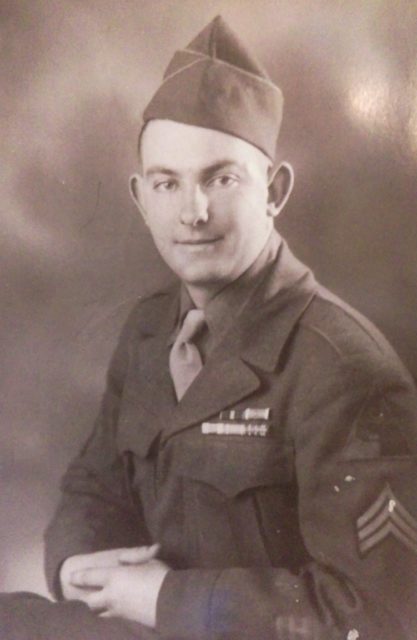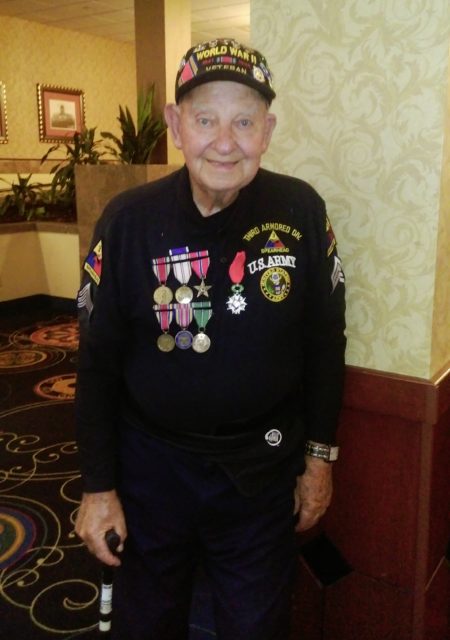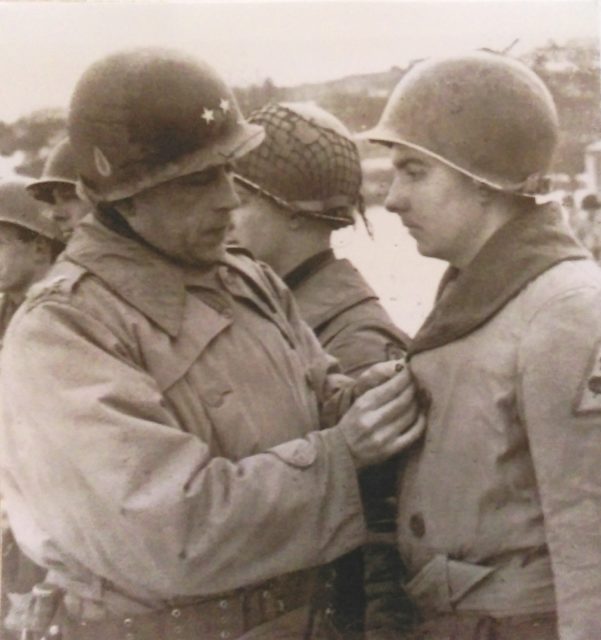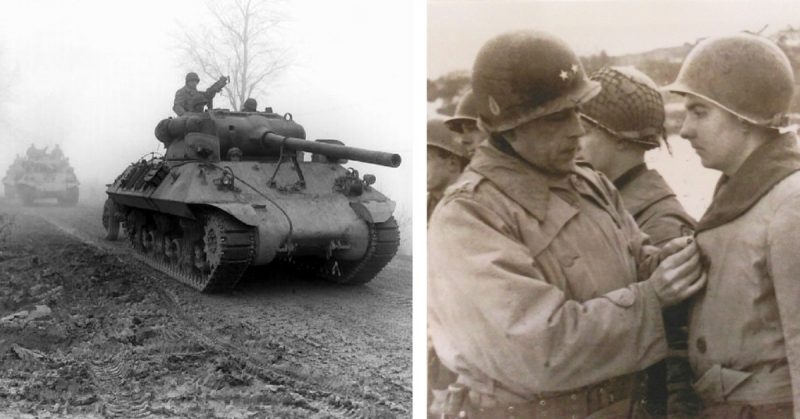War History online proudly presents this Guest Piece from Jeremy P. Ämick, who is a military historian and writes on behalf of the Silver Star Families of America.
An 18-year-old Harry Reed was working on his family’s farm in 1942 when he received a draft notice informing him of imminent military service. Within the next few months, the young man would be thrust into the frontlines of a war raging in Europe and go on to earn several esteemed awards—the most recent of which is the highest accolade bestowed by the nation of France.
“To show our eternal gratitude, the President of the French Republic has decided to award you the Legion of Honor,” wrote Vincent Floreani of the French Consulate in Chicago in a recent letter to Reed.
Floreani added, “Created by Napoleon in 1802, it is the highest honor that France can bestow upon those who have achieved remarkable deeds for France.”
In early 1943, Reed’s military adventure began with his departure from his Eldon, Mo., home and traveling to Ft. Leavenworth, Kan., for induction into the U.S. Army. He was then transferred to Ft. Knox, Ky., where he went on to complete his boot camp. As Reed explained, he remained at Ft. Knox after boot camp to undergo training with a reconnaissance company.

“The recon groups worked out in front of the main element scouting for enemy activity,” said Reed. “Our squad consisted of 14 men with two Jeeps, an armored car and a tank. I rode in the Jeep with a .50 caliber machine gun mounted on it.”
During their training, he further noted, their recon squad would be given checkpoints they had to pass through without being detected, thus preparing them for service in the hostile areas of France and, eventually, Germany.
In late 1943, Reed was sent briefly to Fort Indiantown Gap, Penn., and then on to New York Harbor. While there, he received assignment to Company B, 83rd Armored Reconnaissance Battalion under the Third Armored Division and boarded a troopship bound for an overseas combat zone.
Arriving in Liverpool, England, the division spent several months training before departing for Omaha Beach in France on June 24, 1944, shortly after the famed D-Day landings.
“They brought us in on landing craft and we drove our vehicles off the back,” said Reed. “Had we come in on D-Day with the rest of the invasion force, we would have been in 10 feet of water.” Grinning, he added, “I don’t think that would have worked very well for us.”
Upon their arrival, the veteran recalled, they removed the cosmoline used to protect their vehicles from the salt water and the following week entered battle against well-armed German forces near the French community of St. Lo.

“We (Third Armored Division) became knows at the ‘Spearhead Division,’” said Reed. “We got that nickname because we led the First Army across France and Germany. In France, many of the farms had thick hedgerows they used for fences and we ended up putting bulldozer blades on the front of tanks to cut through them and surprise the Germans,” he added.
While leading the First Army, Reed’s reconnaissance squad was supported by an airplane that scouted ahead for enemy activity. Then, Reed said, the aircraft would radio any activity they spotted to the Third Armored Division, who would then radio to the First Army to determine how they should proceed.
“When we reached the Siegfried Line (a series of fortifications and defensive structures built by Germany along their western border), we had to scout for places where German guns couldn’t hit us as we went through.”
In late December 1944, Reed recalls his squad receiving frantic orders to move to an area north of Bastogne during the Battle of Bulge. It was here that the combat veteran would experience the most grievous event of his military career.
“We got trapped during the Bulge and our lieutenant woke us up and told us to head out,” he said. “”We made it about a block up the road when the Germans, who were hiding in ditches, opened fire on us.” Solemnly, he said, “I was riding in the passenger seat in the Jeep that was leading our squad and our lieutenant slumped over after he was hit in the neck with a bullet.”

Telling the driver to keep going, Reed stated that he “burned up the .50 caliber” by firing at the Germans in addition to emptying two Thompson machine guns, all in about two minutes’ time.
“Our Jeep was the only vehicle from the squad to make it through … those in the other Jeep, armored car and tank didn’t make it. There were fourteen in our squad, two of us made it out of that.”
Reed soon reunited with his company and remained in Europe through the duration of the war. Earning a Bronze Star for valor in combat in addition to two Purple Hearts from shrapnel wounds, the combat veteran accrued enough points to return home in September 1945.
The year after the war’s end, Reed was married and went on to raise five children. In later years, he operated a salvage and recycling company in addition to building two subdivisions in the Eldon area.
Though he takes great pride in his service to the nation during WWII and has received notable recognition from the nation of France, Reed affirms he is anything but a hero.
“I just want to tell the story of what happened during the war,” he sagely explained. “You can read about it in all kinds of books, but sometimes the books fail to explain everything that happened.”
With a heavy pause, he concluded, “All of these people like to come and shake my hand at different events, telling me I’m a hero. But I’m a service man; all the heroes are dead…they are the ones who gave their lives for you.”
